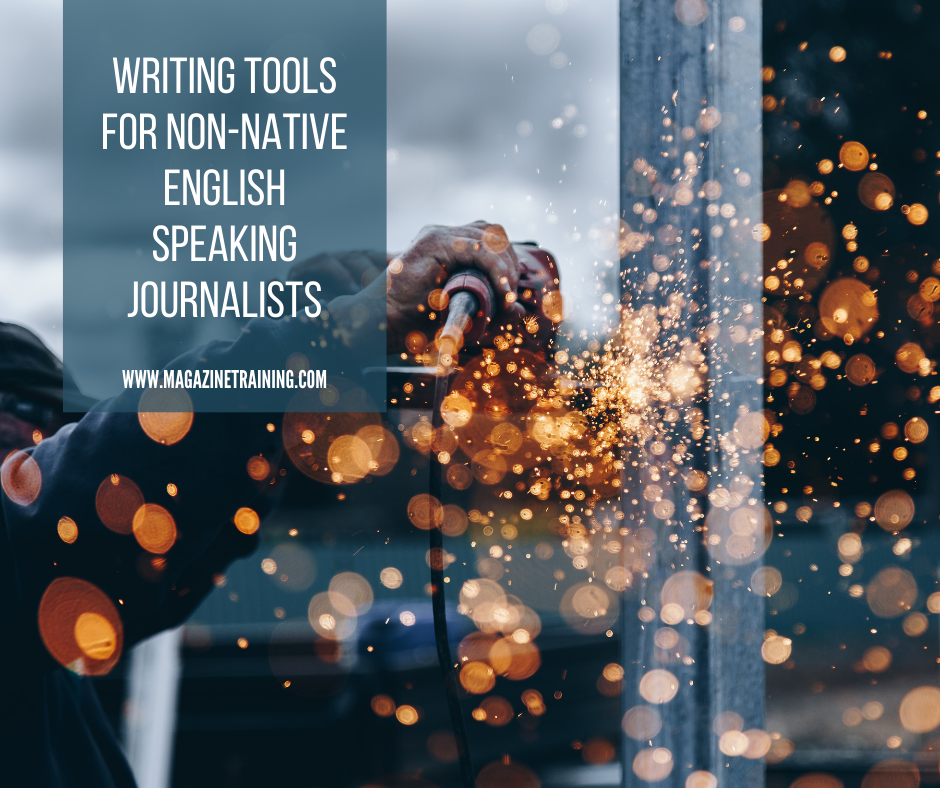
There are many good reasons for journalists around the world to work and report in English, even if it’s not their mother tongue. Many U.S. and U.K. publications have a bigger budget for international stories, and articles in English can reach a broader audience.
However, writing in a second language can be challenging, frustrating, and discouraging. “Journalism wasn’t on my radar for a long time. In my head, I ‘decided’ that as a non-native speaker, I’d probably have no chance of finding a job,” said Kitti Palmai, a freelancer from Hungary who has lived in England for 16 years.
With a degree in business management, Palmai decided to quit her full-time corporate job three years ago and pursue a career in the media via webinars, masterclasses, social media groups, and books. She has since enrolled at the London School of Journalism, and written for global and national outlets, including BBC, VICE, and Insider.
Although Palmai believes that the chances of a non-native speaker getting a full-time position at an English-speaking newsroom are lower, her bilingual skills and cultural expertise have helped her. “It allows you to report on events happening in your country and issues that a native speaker would never [think of],” she said. “[And] foreign sources whose English is not excellent feel more confident talking to someone who’s also a non-native speaker. They feel more understood and not judged based on their language skills. It builds rapport.”
London-based journalist Sofia Lotto Persio, a native Italian, has been an assistant editor at Forbes for about three years and has worked as an English-language journalist for about eight. Prejudice remains an obstacle, she noted. “A foreign name on your CV, a non-native accent, all work against you when you try to progress in your career or get hired for that all-important first job.” Still, she agrees that being a non-native speaker can have its advantages. “[You are] able to understand other non-native speakers better than native speakers can. And also be more original in your expressions or descriptions because of your different linguistic references and perspective.”
Even if you can’t express yourself the same way as you might in your native language, Lotto Persio explained, it doesn’t mean you can’t be a great communicator regardless.
Additionally, if you want to improve your English writing skills and polish your articles before sending them to an editor, a growing number of digital tools, apps and resources can help. Here are a few suggestions:
Expanding vocabulary
The Merriam-Webster Thesaurus and thesaurus.com are both excellent sources for finding synonyms. You can also check definitions on their dictionary pages if you’re unsure what word to use. “I’m very grateful for [every] dictionary/thesaurus app available,” said Lotto Persio. “This job would be a lot harder without the chance to quickly check an expression or a definition at your fingertips!”
The bilingual dictionary WordReference also has a forum where users can ask translation-related questions and crowdsource responses and suggestions, which is extremely useful.
Checking spelling and grammar
Grammarly is a must for avoiding typos. Using the free version of the web app, which can be added as a Microsoft Word and a browser extension, too, you can detect and fix misspelled words and grammatical or punctuation errors. Based on artificial intelligence, its grammar detection may not be perfect all the time, though.
“Grammarly is great to check typos and [for] basic grammatical errors, but it’s not always correct,” Palmai said. Its Premium version provides tone and style suggestions, as well.
by Cristiana Bedei, International Journalists’ Network
Photo by Christopher Burns on Unsplash
Related posts
Magazine Training International’s mission is to encourage, strengthen, and provide training and resources to Christian magazine publishers as they seek to build the church and reach their societies for Christ.

